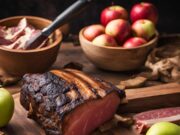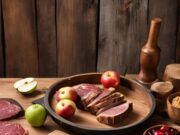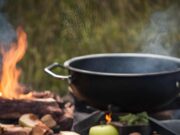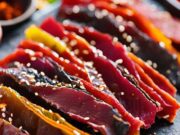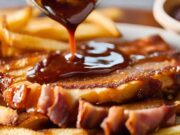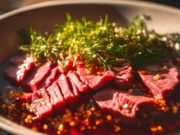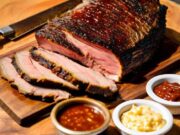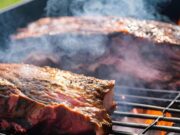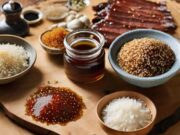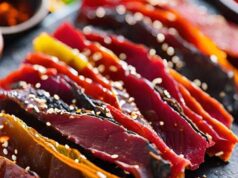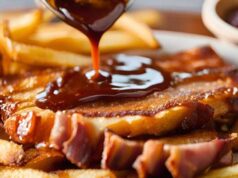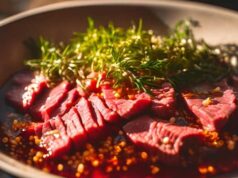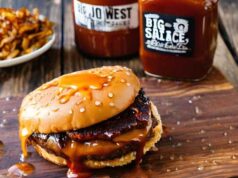Are you prepared to elevate your grilling expertise? Understanding the secrets to achieving juicy and tender BBQ pork chops can turn your cookout into an unforgettable event.
This exploration covers everything from the different cuts of pork chops to the important roles of brining and marinades. You will learn essential grilling techniques, identify common pitfalls to avoid, and receive valuable insights from professional grill masters.
Whether you are a novice or a seasoned professional, you can get ready to impress your guests with mouthwatering pork chops that will have everyone coming back for seconds.
Key Takeaways:
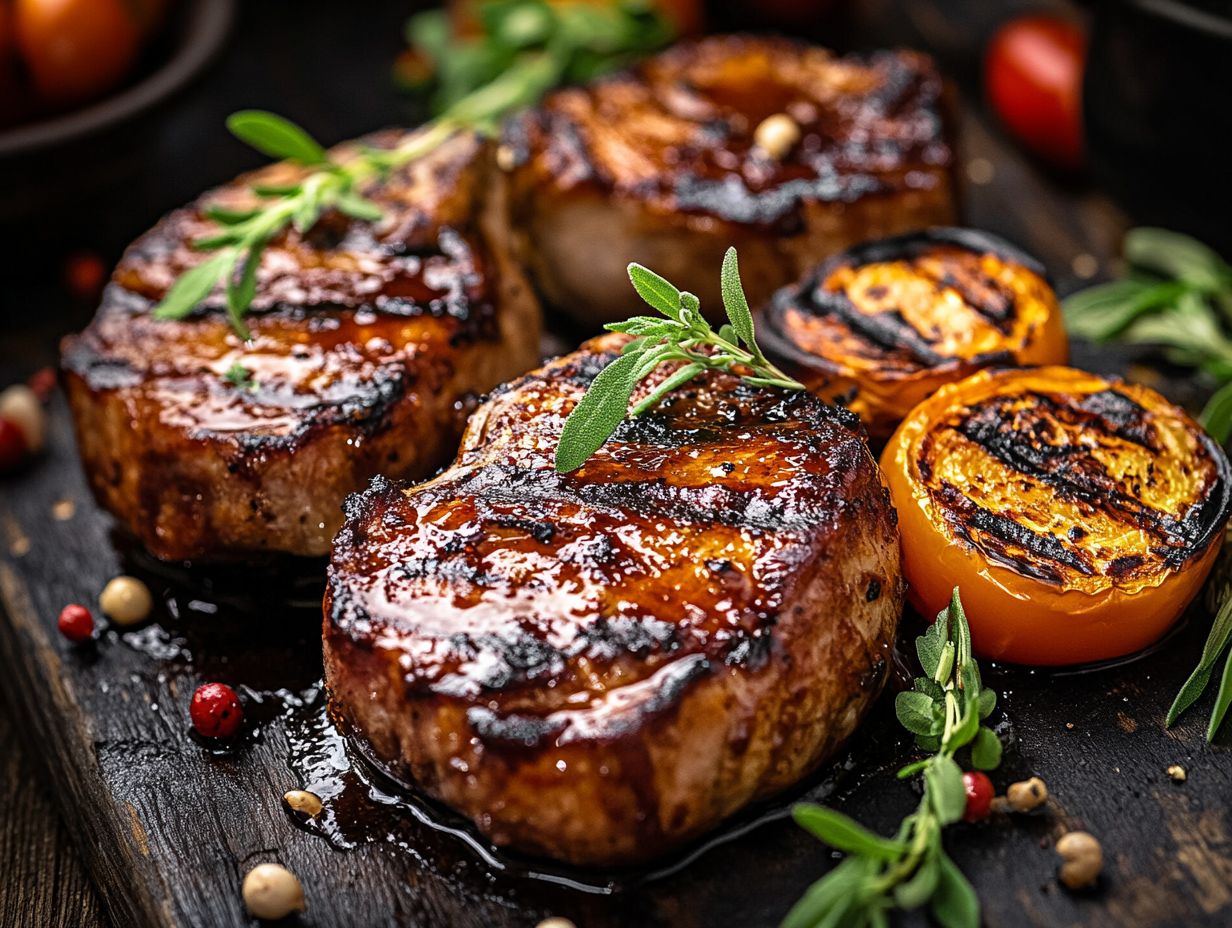
- Understand the different cuts and types of pork chops to choose the right one for your BBQ.
- Brining your pork chops is a crucial step that helps to keep them juicy and tender.
- Experiment with different marinades and seasonings to add delicious flavor to your BBQ pork chops.
Understanding Pork Chops: Cuts and Types
Pork chops come in various cuts and types, each offering unique flavors and textures that can significantly influence the outcome of your dish. The most common types include loin chops, rib chops, and shoulder chops, all of which differ in tenderness and fat content. Understanding these differences is essential for selecting the right pork chop for grilling, baking, or smoking to ensure a delicious and juicy result.
For instance, loin chops are lean and can be wonderfully tender when cooked properly, making them ideal for quick grilling or pan-searing. In contrast, rib chops have more marbling, which not only enhances their flavor but also makes them suitable for slow-cooking methods that allow the fat to render and add moisture.
Shoulder chops, on the other hand, tend to be tougher due to their higher connective tissue content and benefit from braising or slow roasting with robust seasonings like garlic, rosemary, or a sweet barbecue glaze. The choice of seasoning is also crucial, as it can complement the natural richness of the pork—something that varies significantly between cuts.
The Importance of Brining
Brining is an essential technique for cooking pork chops that significantly enhances their moisture and flavor, resulting in incredibly juicy and tender meat.
By soaking the pork chops in a solution of salt, sugar, and vinegar, you not only infuse flavors but also enable the meat to absorb moisture, leading to a more succulent dish. This straightforward step can make a remarkable difference when preparing BBQ pork chops for a summer dinner, ensuring they remain deliciously moist even after grilling.
Benefits of Brining Pork Chops
Brining pork chops offers numerous advantages that significantly enhance both the cooking experience and the final flavor of the dish. By using a brine solution, you increase the moisture content of the meat, which is crucial for achieving tender, juicy pork chops that are rich in flavor. This method not only improves the overall texture but also ensures that the pork remains succulent, even when cooked at high temperatures on the grill.
The brining process infuses the meat with a variety of seasonings, contributing to a deeper flavor profile that non-brined chops often lack. When you compare these two methods, it becomes clear that brined pork chops are considerably more flavorful, as the salt and spices penetrate the meat, enhancing its natural taste. The moisture retention achieved through brining helps to prevent the undesirable dry, tough texture that can arise with non-brined pork, particularly if it is overcooked.
Ultimately, adopting the brining technique transforms a standard pork chop into a gourmet meal, elevating both taste and overall satisfaction.
Marinades and Seasonings for Flavor
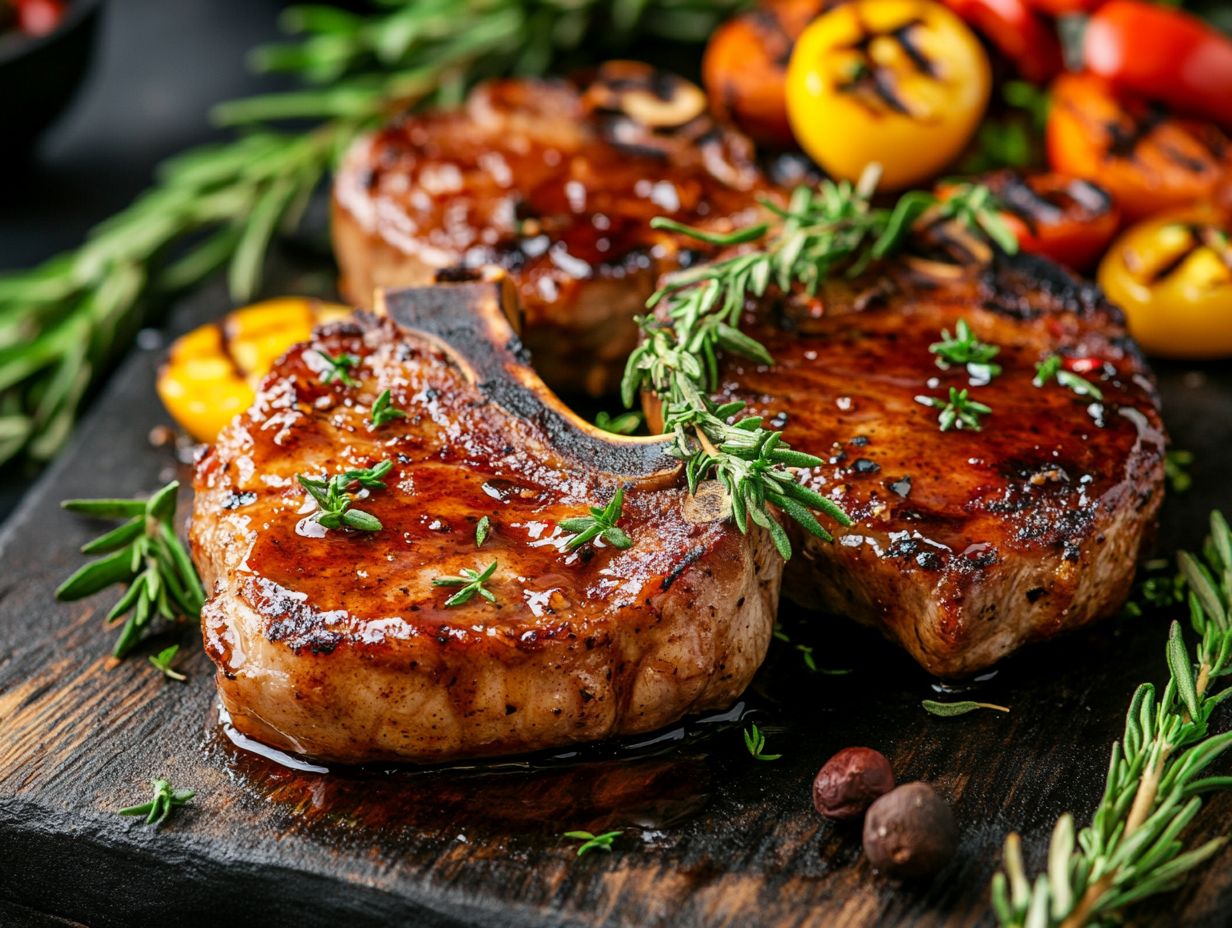
Marinades and seasonings are essential for enhancing the flavor of BBQ pork chops, enabling you to customize your dish with a variety of delicious profiles. A straightforward marinade can include olive oil, vinegar, and a selection of spices such as paprika, garlic powder, and onion powder. These ingredients not only add depth to the taste but also complement the natural flavors of the pork.
By experimenting with different herbs and spices, you can elevate your summer dinners, making each bite a truly sensational experience.
For example, a citrus-based marinade featuring orange juice, lemon zest, and fresh thyme can impart a bright and zesty flavor, while a mixture of soy sauce and ginger creates a savory, umami-rich profile that pairs beautifully with the meat. Alternatively, a blend of mustard, brown sugar, and apple cider vinegar can yield a sweet-and-tangy combination that enhances caramelization during grilling.
Not only do these seasonings allow you to personalize your dish, but they also help tenderize the pork, ensuring a juicy texture that enhances the overall dining experience.
Grilling Techniques for Perfect Results
Grilling pork chops to perfection requires mastering specific techniques that ensure they are juicy and flavorful while achieving the ideal internal temperature. Begin by preheating your grill to medium-high heat, which facilitates a proper sear on the outside while keeping the inside tender and moist.
It is crucial to monitor the internal temperature closely, aiming for 145°F for optimal doneness. This attention to detail will help prevent overcooking and ensure a delicious meal for your summer gatherings.
Direct vs. Indirect Heat
Understanding the difference between direct and indirect heat is essential for grilling pork chops effectively, as each method yields different results based on your desired outcome. Direct heat involves cooking the pork chops directly over the flame, which creates a charred crust and enhances flavor, while indirect heat allows for slower cooking that helps keep the meat tender and moist. By strategically using both techniques, you can achieve the perfect balance of flavor and texture in your BBQ pork chops.
When grilling with direct heat, the high temperature caramelizes the sugars in the meat, enhancing overall flavor, making it ideal for quick searing or finishing off marinated chops. This method is well-suited for those who enjoy a crispy, smoky taste. However, caution is necessary to avoid overcooking, as thick cuts can burn before reaching the desired internal temperature.
Conversely, using indirect heat is advantageous for thicker cuts, allowing for even cooking and reducing the risk of drying out. This method is particularly effective for achieving a tender, juicy result, especially when paired with marinades or rubs. Mastering these techniques requires careful timing and an understanding of the grill’s heat zones to ensure the pork chops are cooked to perfection, regardless of the method chosen.
Optimal Grill Temperature
Achieving the optimal grill temperature is essential for cooking pork chops that are both juicy and flavorful. The ideal temperature range typically falls between medium-high heat. This temperature allows the outside to develop a nice sear while keeping the inside tender and ensuring it reaches an internal temperature of 145°F for safe consumption. By carefully monitoring the grill settings and using a meat thermometer, you can ensure that your pork chops are perfectly cooked every time.
Understanding the impact of grill temperature on cooking time is crucial for achieving the desired results. If the temperature is too low, the pork chops may become dry and chewy due to excessive cooking time. On the other hand, using very high heat can result in burnt exteriors while leaving the meat undercooked. For optimal grilling practices, maintaining a consistent medium-high heat enhances the flavor profile and preserves the meat’s juiciness.
Therefore, staying vigilant about the grill’s temperature and utilizing a reliable thermometer will elevate your grilling experience, ensuring deliciously cooked meals that impress family and friends alike.
Common Mistakes to Avoid
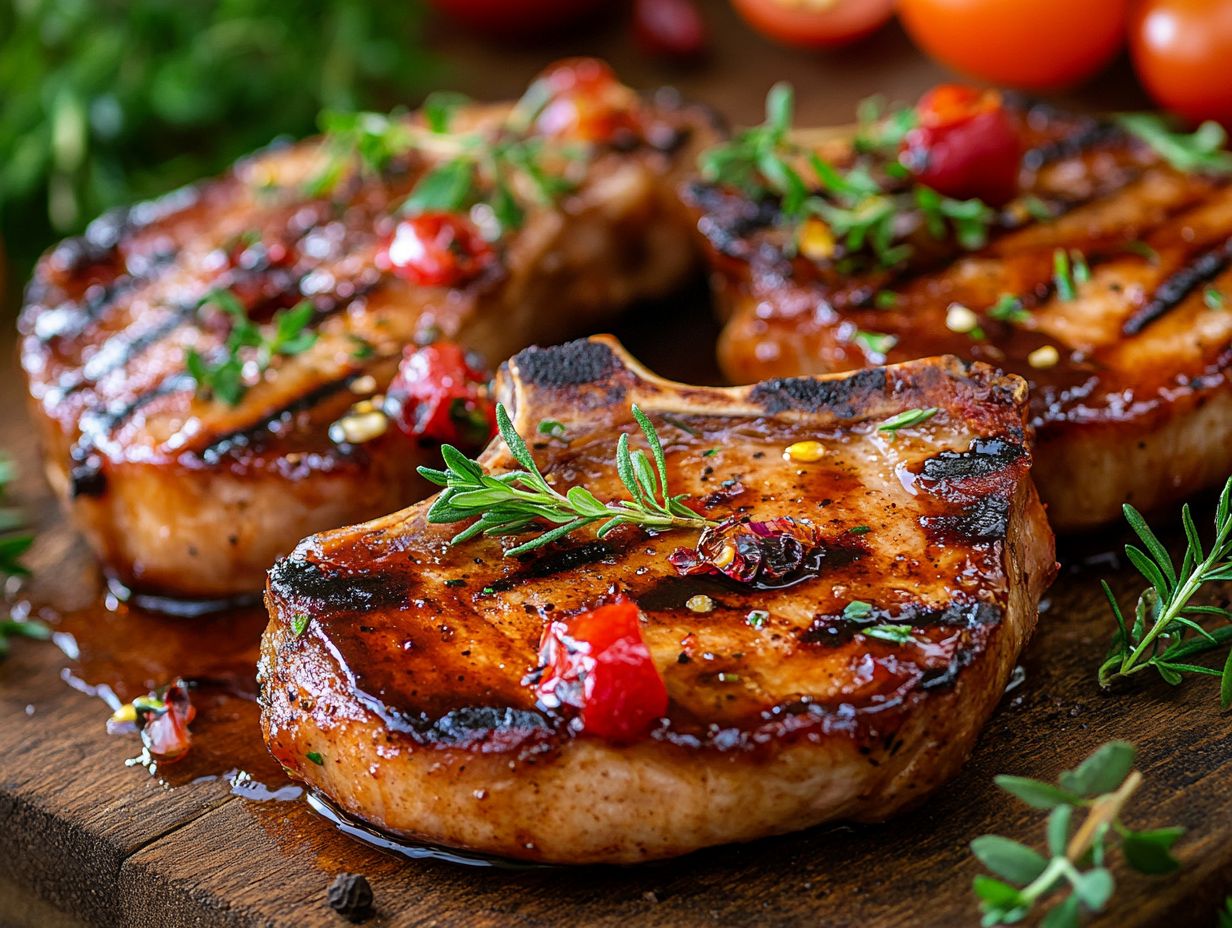
When cooking BBQ pork chops, avoiding common mistakes can significantly impact the outcome, determining whether the meat turns out dry and overcooked or perfectly juicy and tender. One of the most frequent errors you may encounter is overcooking the pork, which can result in a loss of both moisture and flavor.
Additionally, neglecting to properly season the meat or failing to allow it to rest after cooking can detract from the overall dining experience. Understanding these pitfalls is essential for achieving the best results.
Overcooking vs. Undercooking
Understanding the balance between overcooking and undercooking is essential for achieving the perfect pork chop, as both extremes can lead to undesirable results. Overcooked pork chops can become dry and tough, while undercooked meat can pose health risks and lack the desired texture. Monitoring the internal temperature closely with a meat thermometer is the best way to ensure your pork chops are cooked to perfection at 145°F.
Cooking is not just about reaching a specific temperature; it’s also about timing. Factors such as the thickness of the meat, the cooking method employed, and the heat of the cooking surface all play crucial roles in determining how long to cook pork chops.
A well-calibrated thermometer is a pivotal tool that instills confidence when cooking. Additionally, allowing the meat to rest after cooking can help preserve moisture and enhance flavor. By blending these techniques with the appropriate cooking times, you can create succulent, juicy pork chops that are both safe to eat and delightful to the palate.
Tips from the Pros
Learning from professionals can greatly enhance your grilling skills, particularly when it comes to preparing pork chops that are both juicy and flavorful. Professional chefs recommend employing a high-quality brine, allowing the meat to rest after cooking, and carefully monitoring the grill’s temperature to achieve optimal results. By integrating these expert tips into your cooking routine, you can elevate your BBQ pork chops to new levels of deliciousness.
Along with these fundamental techniques, selecting the right cut of pork chop is crucial; bone-in varieties tend to offer more flavor, while center-cut chops can ensure an even cook. In terms of seasoning, a blend of salt, pepper, garlic powder, and herbs such as rosemary or thyme can beautifully complement the natural flavors of the meat.
To introduce an extra layer of smokiness, consider marinating the chops in a mixture of olive oil, citrus, and your preferred spices for several hours before grilling. Presentation is also important; serving the chops alongside a vibrant array of grilled vegetables or a fresh salad can enhance the meal’s appeal and create a visually striking plate.
Frequently Asked Questions
What are the best cuts of pork for BBQ pork chops?
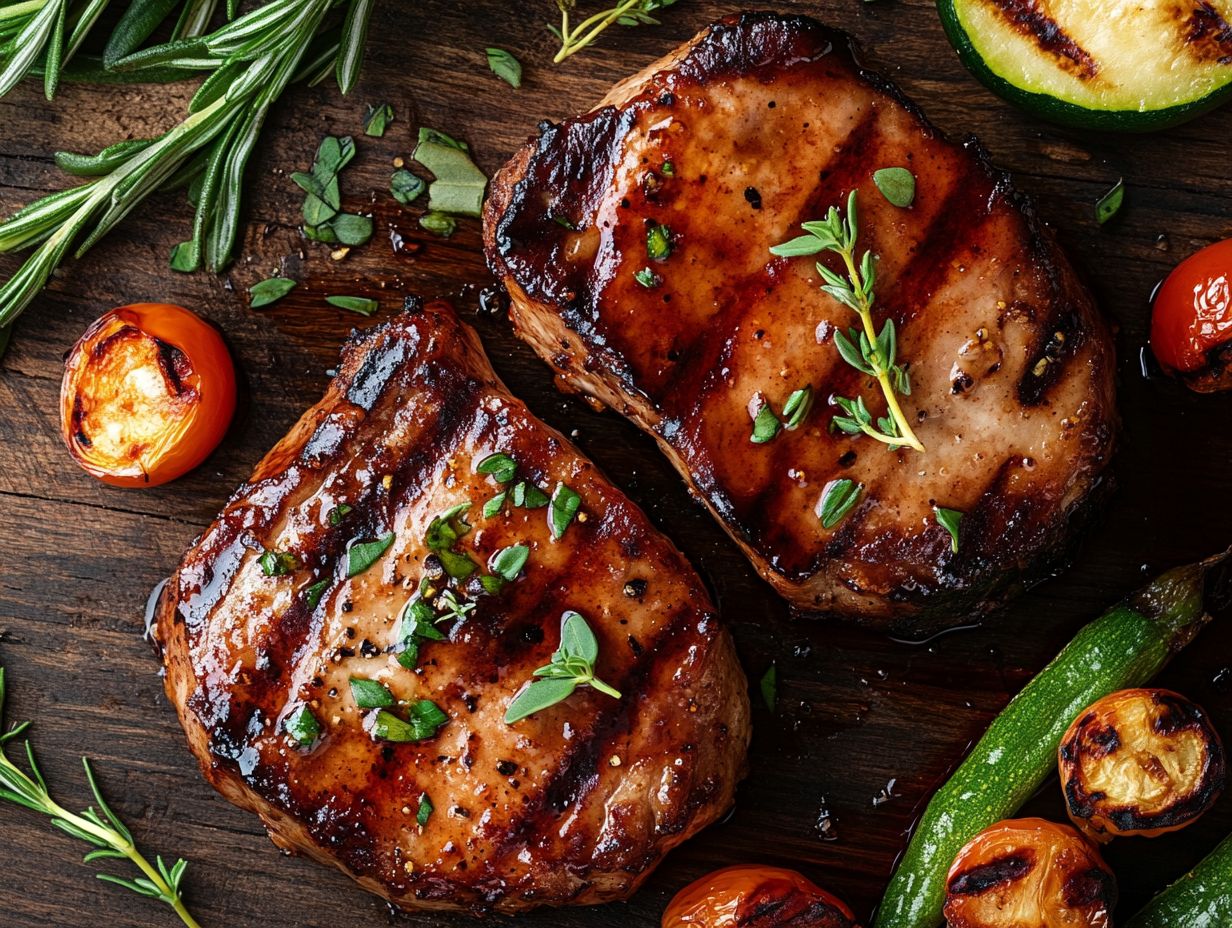
The best cuts of pork for BBQ pork chops are thick-cut bone-in pork chops. These cuts are juicier and more flavorful compared to thinner or boneless cuts.
How can I ensure my pork chops are juicy and tender?
The key to juicy and tender pork chops is to brine them before cooking. This involves soaking the chops in a mixture of water, salt, and sugar for at least 30 minutes before grilling.
What other marinades or rubs can I use for BBQ pork chops?
Besides a basic brine, you can also use a variety of marinades and rubs to add flavor to your pork chops. Some popular options include honey mustard, garlic herb, and BBQ seasoning rubs.
What is the recommended cooking temperature for BBQ pork chops?
The USDA recommends cooking pork to an internal temperature of 145°F (63°C) for medium-rare and 160°F (71°C) for medium. Use a meat thermometer to ensure your pork chops are cooked to the desired temperature.
Should I let my pork chops rest before serving?
Yes, it is important to let your pork chops rest for 5-10 minutes after cooking. This allows the juices to redistribute and ensures a juicy and tender bite.
How can I prevent my pork chops from drying out on the grill?
To prevent your pork chops from drying out, be sure to keep a close eye on them and avoid overcooking. Basting them with a marinade or sauce throughout the cooking process can also help keep them moist and flavorful.



